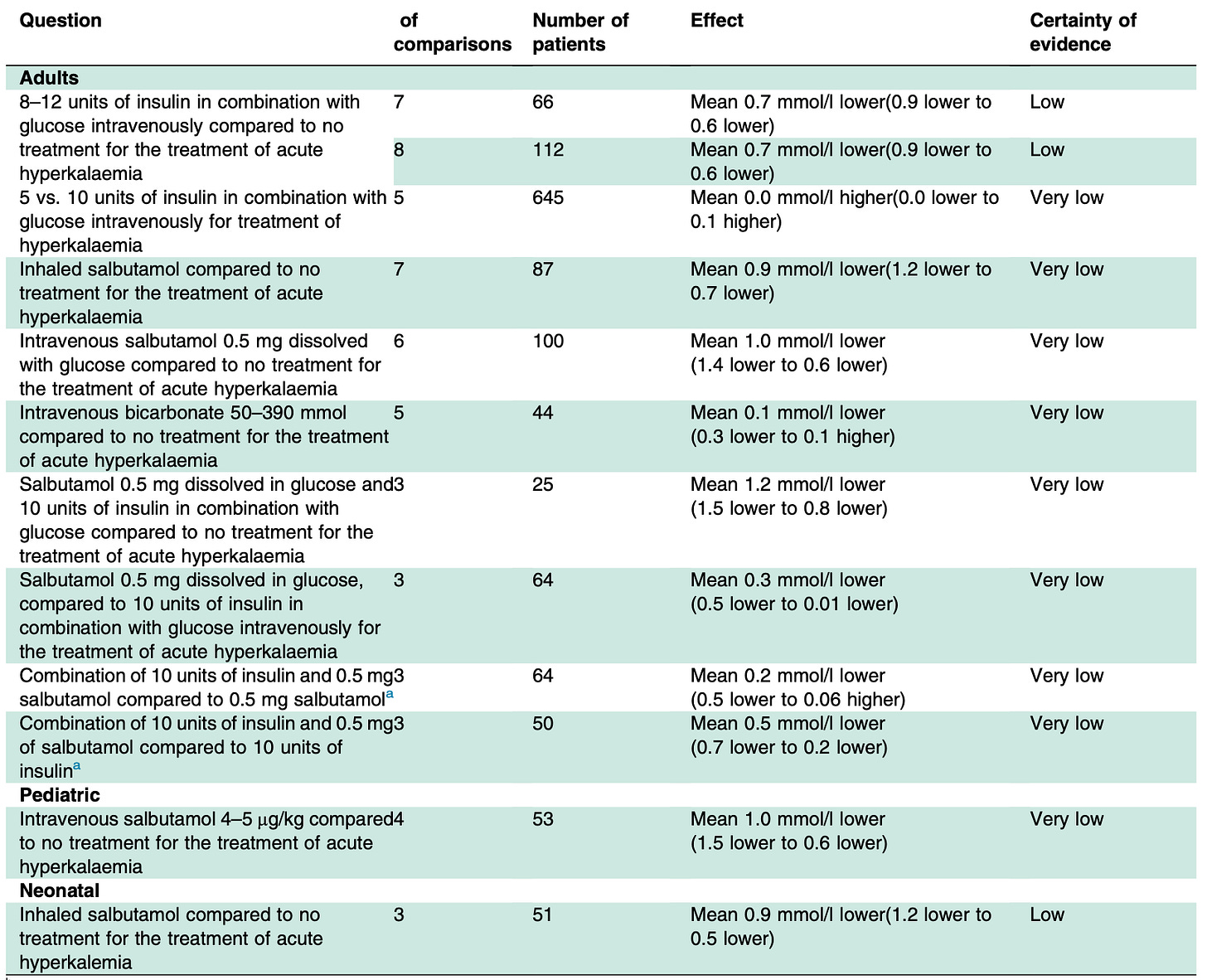The End to Bicarbonate and Calcium for Hyperkalemia?
No, not necessarily – but the evidence in support is severely lacking.
Hyperkalemia is notoriously dangerous. Potassium chloride, after all, is used intravenously for euthanasia. Elevated potassium levels in clinical scenarios require emergency treatment to prevent life-threatening arrhythmias.
For a lethal, relatively common medical emergency, we have good evidence to support our treatment, right? [Anakin Skywalker/Padmé Amidala meme] Right?
How about “Low” to “Very Low” level of evidence for treatments of elevated serum potassium:
Further, this updated systematic review calls into question the use of bicarbonate absent any evidence supporting a lowering effect.
Then, the systematic review goes on to call out calcium administration in the context of hyperkalemia – examining the anachronistic and poor quality case series describing the independent effects of calcium on ECG pathology and clinical outcomes. The authors cite evidence for potential harm from calcium administration, and sensibly illuminate this as a topic for further prospective study.
These data are not necessarily practice-changing, but certainly it ought remind us the precariousness of our clinical practice foundations.


Judicious use of Calcium - all too often I’ve seen a knee jerk reaction to giving it for hyperkalaemia without ECG changes. In chronic dialysis patients this approach seems to increase calcification of vasculature . Reminding juniors calcium has no effect of potassium levels so it doesn’t become such an automatic response ..